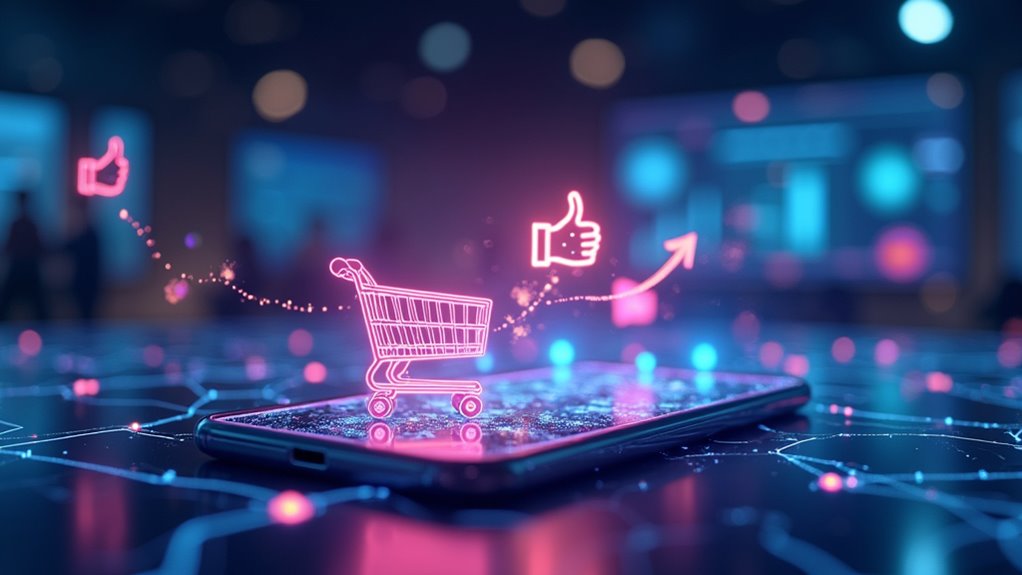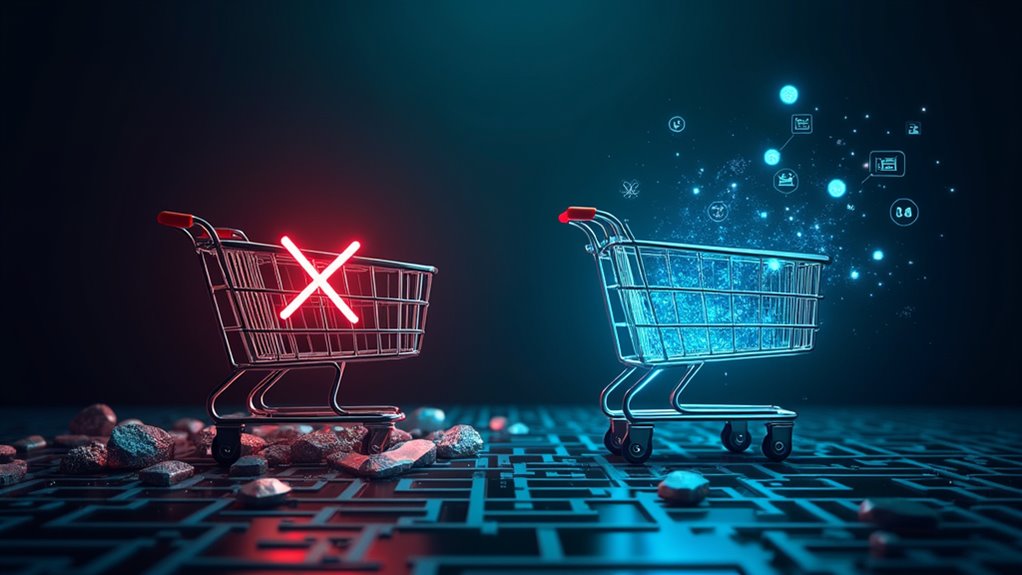AI is pulling off marketing’s biggest job shuffle since Don Draper hung up his hat. 75% of marketing staff are ditching mundane tasks for strategic work, while AI handles the grunt work—expect 30% of marketing hours automated by 2030. Basic data entry roles? *Nearly extinct*. Meanwhile, shiny new positions like AI prompt engineers and automation strategists command 25% wage premiums. With 88% of marketers already using AI daily, this revolution isn’t coming—it’s here, and the implications run deeper than most realize.
Envision this: 75% of marketing staff are ditching their old production tasks for strategic, creative work. *Finally*, someone figured out humans shouldn’t spend their days manually entering data like it’s 1999.
By 2030, AI will handle 30% of marketing work hours, which means your daily grind is about to look dramatically different.
Those basic data entry and campaign execution roles? Nearly obsolete. But before you panic, here’s the plot twist—new jobs are emerging faster than Marvel superhero movies. AI prompt engineers, marketing data scientists, and automation strategists are becoming the new rockstars of marketing teams.
The old marketing jobs are vanishing, but the new AI-powered roles are where the real action—and money—is happening.
The numbers tell an interesting story. Positions requiring AI specialist skills have grown 3.5 times faster than other job categories since 2016. And here’s the kicker: these roles come with wage premiums up to 25%. Not bad for learning how to talk to robots, right?
But there’s a catch—*there’s always a catch*. By 2030, you’ll need to change 70% of your marketing skills. That’s not a typo. Data analytics, machine learning, and ethical AI management aren’t just nice-to-haves anymore; they’re table stakes.
The productivity gains are real, though. Large organizations expect 30% of their outbound marketing messages to be AI-generated by 2025. Campaign timelines are shrinking, costs are dropping, and targeting accuracy is improving.
Nearly 90% of Fortune 1000 companies are doubling down on AI investments because the ROI speaks louder than skeptics. The transformation extends beyond efficiency—AI now provides predictive capabilities that allow businesses to anticipate market shifts and allocate resources with unprecedented precision.
Companies integrating AI into marketing strategies can experience up to 45% profit increases, making this technology more than just a competitive advantage.
Yet the elephant in the room remains: AI could replace up to 85 million jobs globally by 2025. Lower-wage, repetitive marketing roles face the biggest risk. Meanwhile, 88% of digital marketers are already utilizing AI in their daily tasks, proving that adaptation is happening faster than many expected.
The silver lining? 73% of AI experts predict an overall positive impact**** on job markets. Translation: new opportunities will offset many losses, but only if you’re willing to evolve with the technology rather than against it.







